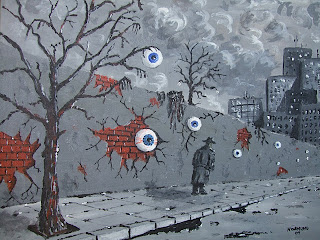Just about all the other performers talked about how much the Shakespeare Behind Bars program helped to change their lives for the better. Hal was the only one who spoke about it as something ultimately unfulfilling. I was surprised that he said that at first because the parts of the play I saw him perform were really good. In the context of Hal’s life, however, I begin to understand how play-acting with his fellow inmates could merely serve as a temporary diversion to keep himself occupied. With the guilt of killing his pregnant wife by dropping a hair dryer into her bath water hanging over his head for decades, a Shakespeare play probably does the same for him as would a Band-aid on a severed limb.
Hal admits that “It’s helped me to forgive myself” and I can definitely see how that could be. Taking on a role like Prospero, who has to learn a major lesson about forgiveness, could help someone to come to the same discoveries. Finding forgiveness for one’s self and one’s neighbor can be extremely healing.
On the other hand, Hal knows that any amount of genuine forgiveness isn’t enough to redeem him from the harsh reality that surrounds him on a daily basis. He will spend the better part of his life confined to a prison. He will never have the kind of opportunities to create meaning for his life like a normal person would in the outside world. The reality is that he will never have a normal life. Maybe performing in a Shakespeare play will allow him to forget about his tedious, restricted life for a while, but once the costumes are put away and the handcuffs get snapped back on Prospero’s last lines take on an almost sarcastic tone.
“As you from crimes would pardoned be,
Let your indulgence set me free.”
That’s all fine and good for Shakespeare to say, but from the lips of a convicted murderer it’s an overly simplistic view of the way society actually treats criminals. Prospero’s plea falls flat on the ears of our criminal justice system.
He’ll find no “indulgence” from the powers that be,
To set truly penitent murderers free.





